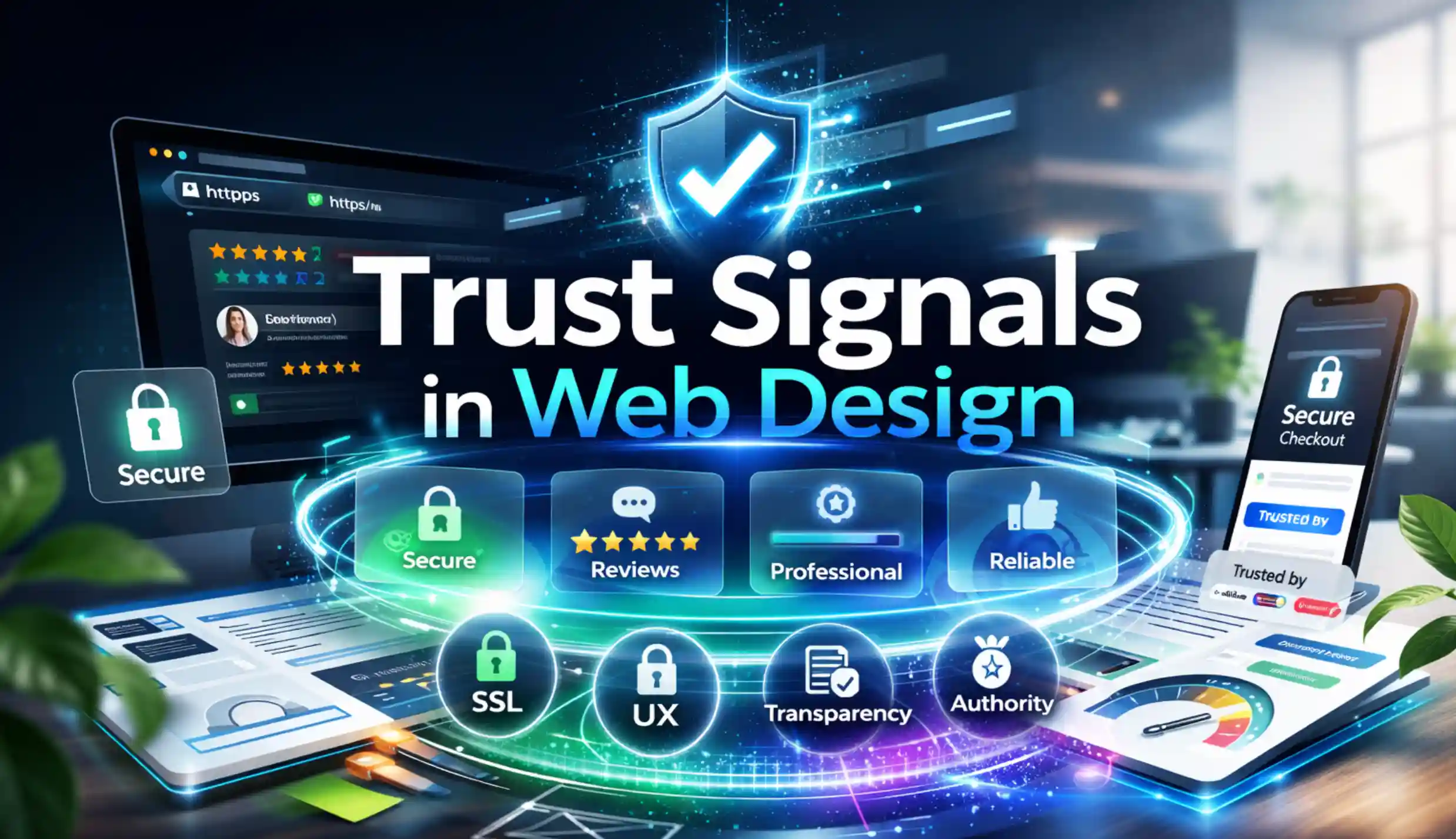PPC vs. SEO: Which Is Better?
Updated on
Published on

PPC (pay-per-click) and SEO (search engine optimization) are two effective methods of increasing search visibility on Google engines that guide businesses through a complex landscape in the vast world of online marketing. These strategies, each with its own unique set of attributes and challenges, play a pivotal role in determining a brand's digital success. In this article, we delve into the depths of PPC and SEO, deciphering their intricacies, benefits, and drawbacks, aiming to shed light on the perpetual debate that marketers grapple with—choosing between the instantaneous impact of PPC and the enduring influence of SEO. Beyond the realms of PPC and SEO, it's imperative for businesses to actively track their digital footprint to comprehend the broader impact of their online presence. Understanding how users interact with content, analyzing engagement metrics, and employing tools to track digital footprint become essential in crafting a holistic online strategy that aligns with long-term brand objectives
At the crossroads of digital marketing, PPC and SEO stand as pillars, each influencing a brand's online presence in distinct ways. PPC, epitomized by platforms like Google Ads, involves paid online advertisements where businesses bid for visibility in search results. On the other hand, SEO is the art of optimizing a website to enhance its visibility on search engines organically. The significance of comprehending the disparities between PPC and SEO cannot be overstated. Crafting effective online marketing strategies hinges on the ability to leverage these tools strategically. This understanding is the linchpin that empowers businesses to make informed decisions, maximizing their impact in the digital realm. The debate between PPC and SEO is not just theoretical; it is a real-world problem that marketers face every day. The challenges lie in striking the right balance, aligning these strategies with business objectives, and navigating the evolving landscapes of search engine algorithms and user behaviour.
Understanding PPC: Unleashing the Power of Paid Advertising
At its core, PPC is a model where advertisers pay a fee each time their ad is clicked. The most prominent player in this arena is Google Ads, a platform that enables businesses to bid for ad placement in search results. Google Ads, with its far-reaching influence, provides a comprehensive platform for PPC advertising. It allows businesses to bid on keywords, ensuring their ads appear prominently when users search for relevant terms. The mechanics of PPC involve advertisers bidding on specific keywords. Ad placement is determined through an auction, with factors like bid amount and ad quality influencing the outcome. The bidding system ensures a dynamic and competitive landscape.
PPC advertising presents a multifaceted toolkit for businesses seeking strategic online visibility. Firstly, its targeting capabilities stand as the pinnacle of precision, allowing advertisers to tailor campaigns with surgical accuracy. Demographics, geography, and user behaviour become nuanced parameters, ensuring that ads reach the most relevant audiences. Secondly, the allure of quick results and immediate visibility distinguishes PPC from the gradual pace of SEO. In time-sensitive scenarios, PPC's ability to render ads instantly visible provides a competitive edge. Moreover, the third facet lies in the flexibility of campaign management, enabling real-time adjustments to align with evolving market dynamics and shifting business objectives.
Yet, amid its prowess, PPC is not without its challenges. The foremost consideration is the cost involved. While PPC delivers instantaneous visibility, advertisers must tread carefully when managing budgets to prevent excessive spending. The pay-per-click model introduces a vulnerability in the form of click fraud, where competitors or malicious entities may engage in fraudulent clicking to exhaust advertising budgets. This necessitates vigilant monitoring and preventive measures. Lastly, and notably, PPC exhibits limitations: its impact is confined to its realm and does not directly influence organic search rankings. This demarcation prompts businesses to weigh the immediate benefits against potential drawbacks when crafting their digital marketing strategies.
Understanding SEO: The Art of Organic Visibility
SEO, the cornerstone of organic visibility, involves optimizing a website's content and structure to enhance its ranking on search engine result pages (SERPs). Organic search visibility is the holy grail for businesses seeking sustained online success. SEO is the key to unlocking this organic potential, making a website more visible to users searching for relevant content.
Effective SEO strategies encapsulate a synergy of key elements, each pivotal in enhancing a website's visibility and relevance. Firstly, on-page optimization involves meticulous fine-tuning of individual pages, strategically incorporating keywords and meta tags. This optimization serves as the bedrock for search engines to comprehend and index content accurately. Secondly, quality content creation is paramount. Crafting compelling, valuable content not only resonates with users but also aligns with search engine algorithms, contributing to improved rankings. The third element involves backlink building, a process of cultivating a network of high-quality backlinks. This not only establishes a website's authority but also enhances its credibility in the eyes of search engines. Lastly, technical SEO considerations delve into aspects such as site speed, mobile friendliness, and crawlability, ensuring optimal performance in the digital ecosystem.
The benefits accrued from a well-executed SEO strategy extend beyond mere rankings, ushering in a spectrum of advantages. Firstly, the long-term impact and sustainability of SEO efforts are noteworthy. Once established, SEO becomes a reliable source of organic traffic, continuously contributing to a website's visibility. Cost-effectiveness over time is another feather in SEO's cap. While initial investments are requisite, the enduring benefits often outweigh these costs, making SEO a judicious and sustainable marketing investment. Additionally, SEO plays a pivotal role in building trust and credibility. High organic rankings position a brand as a credible authority in its domain, fostering trust among users and potential customers.
However, the path to SEO success is not without its challenges and drawbacks. The time-intensive nature of SEO demands patience. Results are not instantaneous; optimizations require time to take effect, and rankings evolve gradually. The influence of algorithmic changes is a perpetual challenge. Search engines regularly update their algorithms, necessitating adaptability to stay abreast of shifting ranking factors. Moreover, the competition and saturation prevalent in certain niches pose a challenge. Standing out in organic search results becomes progressively challenging in highly competitive landscapes. Navigating these challenges requires a nuanced and adaptive approach to SEO strategies. In the dynamic landscape of online marketing, the choice between PPC and SEO is not binary; it's a strategic decision rooted in an understanding of their nuances. Part two of this exploration will delve into a comparative analysis of the pros and cons of PPC and SEO, offering insights into how businesses can navigate this digital dichotomy to achieve optimal results.
Pros and Cons Comparison: PPC vs. SEO

In the dynamic realm of online marketing, the choice between PPC (pay-per-click) and SEO (search engine optimization) goes beyond mere tactics; it's a strategic decision that significantly shapes a brand's digital footprint. This section unveils a detailed comparative analysis of the pros and cons of PPC and SEO, dissecting their impact on awareness, branding, costs, targeting, speed, and agility.
1. PPC: Immediate Visibility: PPC shines when immediacy is paramount. Paid ads guarantee instant visibility on search engine result pages (SERPs). Businesses bidding on keywords can swiftly occupy prime ad spaces, ensuring their message reaches the audience promptly.
2. SEO: Building Long-Term Awareness: In the SEO arena, awareness is a gradual build. Optimizing for organic search rankings involves strategic efforts over time. While it may take longer to see results, the awareness generated through SEO is enduring, establishing a brand's presence in the organic landscape.
Branding Impact
1. PPC: Short-Term Branding Benefits: PPC offers short-term branding benefits, particularly for time-sensitive campaigns. Advertisers can leverage the visual prominence of ads to create immediate brand recognition. However, this impact tends to wane once the campaign concludes.
2. SEO: Establishing Credibility and Trust: SEO, with its focus on organic visibility, contributes to brand credibility and trust. High organic rankings signal to users that a brand is authoritative and trustworthy. The impact on brandingv is subtle but profound, fostering a long-term relationship with the audience.
Costs and ROI
1. PPC: Immediate Costs, Potential for High ROI: PPC comes with immediate costs, as advertisers pay for each click. However, the potential for a high return on investment (ROI) is significant. Well-crafted PPC campaigns, when optimized effectively, can deliver substantial returns, especially for businesses in need of quick results.
2. SEO: Long-Term Investment, Sustainable ROI: SEO is a long-term investment that requires patience. While the upfront costs may not be as apparent, the sustainable ROI over time can be substantial. Once a website establishes strong organic visibility, the ongoing traffic comes at a relatively lower cost.
Targeting Capabilities
1. PPC: Precise Audience Targeting: PPC provides unparalleled targeting precision. Advertisers can tailor their campaigns based on demographics, geography, interests, and user behaviour. This precision ensures that ads reach the most relevant audience.
2. SEO: Broad Organic Reach: SEO, being organic, has a broader reach. While the targeting is not as precise as PPC, the organic rankings allow businesses to connect with a wide audience actively searching for related content. The reach is expansive, covering a spectrum of user intent.
Speed and Agility
1. PPC: Quick Campaign Setup and Adjustments: Speed is the essence of PPC. Campaigns can be set up swiftly, making them an ideal choice for time-sensitive promotions. Additionally, PPC allows real-time adjustments, enabling advertisers to adapt to changing market conditions on the fly.
2. SEO: Time-Intensive but Sustainable Impact: SEO operates on a different timeline. It requires time for optimizations to take effect and rankings to improve. While the initial setup is time-intensive, the impact is sustainable over the long term, offering a consistent flow of organic traffic.
Integrated Approach: SEO and PPC Working Together

Recognizing the synergy between SEO and PPC is crucial. While each has its strengths, combining both creates a holistic digital marketing strategy that maximizes overall impact. PPC is ideal for achieving quick wins and meeting short-term objectives. SEO, on the other hand, forms the backbone of long-term strategies, ensuring sustained organic visibility. Numerous success stories highlight the effectiveness of integrating SEO and PPC. Brands that strategically leverage both avenues often witness enhanced visibility and improved conversion rates.
Benefits of Combining Both Approaches
1. Data Integration for Improved Insights: Combining data from SEO and PPC offers comprehensive insights. Analyzing performance metrics across both channels provides a nuanced understanding of user behaviour and preferences.
2. Maximizing Visibility Across Search Landscapes: An integrated approach ensures visibility in both paid and organic search results. Brands can occupy more real estate on SERPs, increasing the likelihood of capturing user attention.
3. Adapting Strategies Based on Performance Data: The data obtained from both SEO and PPC campaigns facilitates informed decision-making. Marketers can tweak strategies based on performance data, optimizing for maximum impact.

Decision-Making: Factors to Consider
1. Targeted Keywords and Audience: Tailoring strategies based on the nature of targeted keywords and the intended audience helps determine the most effective approach.
2. Evaluation of Search Result Landscapes: Analyzing the SERPs for relevant keywords provides insights into the competitiveness of organic and paid spaces.
3. Location-Based Variations in Results: Understanding how search results vary by location is vital, especially for businesses with geographic considerations.
4. Business Goals and Required Lead Generation: Aligning PPC and SEO with specific business goals and lead generation requirements ensures a targeted and results-oriented approach.
5. Time and Budget Considerations: Balancing time-intensive SEO efforts with the agility of PPC requires a nuanced consideration of budget constraints and timeframes.
Examining real-world scenarios and case studies provides practical insights into how businesses navigate the decision-making process, showcasing the diverse strategies employed based on unique circumstances. Recognizing the dynamic nature of search engine algorithms and user behaviour, businesses must stay agile. Adapting SEO and PPC strategies in response to evolving trends ensures continued relevance and effectiveness.
In the PPC vs. SEO debate, it's essential to revisit key insights. While PPC ensures immediate visibility, SEO establishes lasting credibility. Tailoring strategies to business objectives is paramount, urging businesses to recognize the symbiotic relationship between PPC and SEO. The verdict lies not in either/or but in strategic integration. Embrace the immediacy of PPC for short-term goals and the enduring impact of SEO for long-term success. In the dynamic landscape of digital marketing, a comprehensive strategy that harmonizes both avenues ensures a resilient online presence and sustained business growth.



webp.webp)
webp.webp)




